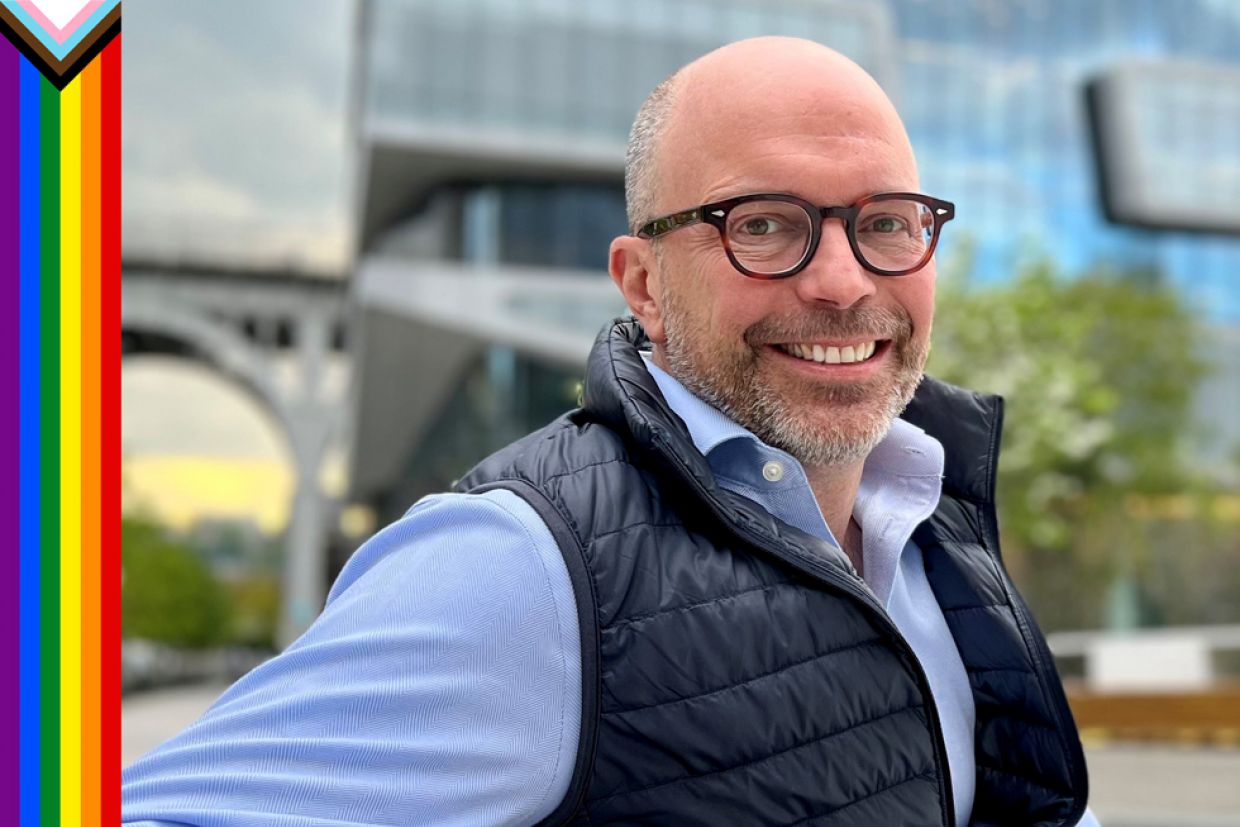Brett House, Artsci’94, saw his sexuality as a liability when he was starting his career as an economist in the 1990s.
It was a time when same-sex couples were not allowed to be legally married in Canada. Some provinces still had employment laws that allowed discrimination on the basis of sexual orientation. While studying at Queen’s in the 1990s, House says it was a “terrible place” to be gay because queer students did not feel safe or supported.
“I am grateful for all that Queen's gave me and I'm a very proud alumnus. But Queen's wasn't a welcoming environment to be a queer person during my undergrad days. There were very few out students or queer spaces,” says House, who is also a Rhodes Scholar with an economics degree from the University of Oxford. “Change happened because of the thoughtful advocacy of a number of students who were bolder and braver than I was at the time.”
Today, House is paving the way for others as an advocate for 2SLGBTQ+ rights, especially in the workplace. He was named one of the world’s top 100 LGBTQ executives in 2021 by INvolve & Yahoo Finance and recently started working as an economics professor at Columbia Business School in New York.
He lobbies for change in every organization he works for so people from diverse backgrounds who follow in his footsteps will have more welcoming and inclusive experiences.
House was a founding member of the Scotiabank CEO's Diversity & Inclusion Council and helped identify the bank’s equity challenges more clearly and improve its efforts to retain diverse employees. He’s on the board of directors of The 519 (a community centre in Toronto that provides support and services to the 2SLGBTQ+ community) and is part of mentorship programs with 2SLGBTQ+ students at the University of Toronto. In 2018, Start Proud (an organization of young, queer professionals) gave House its Professional Leader Award for his efforts to make the business world more inclusive.
One of House’s proudest achievements, which helped thousands of people, occurred early in his career while working at the International Monetary Fund (IMF), the United Nations organization that promotes sustainable growth by advancing economic policies focused on financial stability and monetary cooperation.
House led the IMF’s queer employees’ group. In the early 2000s, legal marriage equality arrived in a few countries, including the Netherlands, Belgium and Canada. The IMF’s human-resources rules stated that spousal and family benefits should go to any employee who was in a marriage legally recognized in the country in which it was performed. These benefits were initially provided to and then withdrawn from the first IMF 2SLGBTQ+ employees in legal marriages, due to objections from some IMF member countries and other employees. House and his colleagues argued for equality, noting that the IMF did not need to change any policies or create new bylaws to achieve it. The IMF simply needed to apply its decades-old, non-gender-specific benefits rules on an even basis to same-sex couples. It was a three-year battle they ultimately won, and those changes eventually spread to other UN organizations.
“2SLGBTQ+ rights have not been given. They have been fought for, demanded and earned,” says House. “As a visible, out senior member of several large institutions, I hope that I have helped to create space for others to bring their whole selves to work.”


